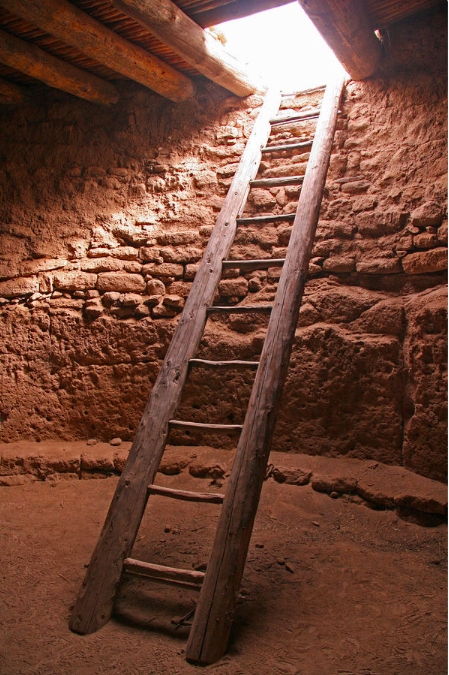The Study Quran: A Religious Milestone (David Crumm)
In a world currently-plagued by fear and ignorance towards Islam, we humbly suggest getting to know The Study Quran. We’re featuring excerpts from the article below as part of our collection: Envisioning Transformation. This article does an excellent job of explaining the value of The Study Quran. Thanks so much to Imam Islam Mossaad for the recommendation and gift of this volume. May all of today’s cultures come to love each other and seek abundance together.-CS
“…And do not commit abuse on the earth, spreading corruption.” Quran, 2:60
10 years in research, 2,000-page ‘Study Quran’ is a religious milestone
(David Crumm, editor, Read the Spirit)
FOR YEARS, millions of Christians have opened their thick “study Bibles” for personal inspiration and for discussion in the millions of Sunday School classes and small Bible-study groups nationwide. Now, an equally substantial Muslim volume, The Study Quran, a resource for Muslims and Christians who want to learn more about this closely-related, sister faith.
The completion of this decade-long research-and-writing project comes on the heels of a newly released Pew study of Americans’ religious lives that shows a significant rise in scripture reading and small-group studying among men and women who are affiliated with a religious group. The HarperOne publishing house is assuming that readers of this new book will cut across religious lines, generations and settings.
“It’s a huge project and I’m so proud of it,” HarperOne Publisher Mark Tauber. In 2005, Tauber’s staff began the project with Editor-in-Chief Seyyed Hossein Nasr, the highly respected Islamic scholar… Dr. Nasr brought together the editorial board for this project. Then they added two dozen experts around the world to write essays and cover topics throughout the book. The result is more than 2,000 pages.
WHY IS THIS ‘STUDY QURAN’ UNIQUE?
How different is this new Quran?
The short answer is: This is a historic turning point in publishing the Quran for English-speaking readers.
This edition is translated and explained through commentaries prepared by a broad range of Islamic scholars. It’s a cooperative, peer-reviewed project with the goal of accurately summarizing many centuries of Islamic thought. In contrast, until now, most English renderings of the Quran have been prepared either by a single writer—or were promoted with a specific political agenda.
Why is it important to choose a balanced edition of a Quran translation and commentary?
Because there are lots of poor choices among the available versions—some of them quite tempting because they are given away free of charge.
Problems arose when earlier editors tried to influence their readers by adding notes to the Quran’s text either emphasizing points or drawing conclusions that are not in the Arabic text itself. One prominent example is the Quran’s warning against “those who have incurred God’s anger” or “those who have been led astray.” Many Islamic leaders regard these as warnings against idolaters and hypocrites. But, some editions of the Quran add notes telling readers to interpret these phrases as refering to Christians and Jews.
Two widely distributed versions of the Quran are now considered biased against other faiths because of additional notes in the books—notes that the editors drew from Medieval Islamic writers who stressed anti-Christian and anti-Jewish themes that were popular in that era. One of these free-of-charge editions is the thick, green-cover volume that is usually titled The Holy Quran: Translation and Commentary by Abdullah Yusuf Ali. Millions of copies of this 1934 version have been given away around the world thanks to Saudi funding. When he prepared his book a century ago, Yusuf Ali carried the Medieval biases against other religions into his edition.
For years, the Saudis were aware of problems with Yusuf Ali’s translation, including the old-fashioned tone of its English translation. So, the Saudis funded and promoted a 1985 translation, The Noble Quranby Muhammad Muhsin Khan and Muhammad Taqi-ud-Din al-Hilali. Once again, the Saudis flooded the world with this new version, which readers agree has a more contemporary feel to the English than Yusuf Ali’s rendering. However, the Muslim traditionalists working on this 1985 edition continued to stress anti-Christian and anti-Jewish themes taken from the Medieval scholars.
Around the world, other individual experts prepared more progressive translations, often in pointed contrast with the two Saudi versions that were flooding the planet. One single-author version that is widely praised for its balance is The Qu’ran by Muhammad A.S. Abdel-Haleem, published by Oxford University Press. Writing in The Middle East Quarterly a few years ago, Khaleel Mohammed reviewed many English translations and concluded:
“If any Quranic English-language translation might stand to compete with the Saudi-financed translations, this Oxford University Press version is it. Nevertheless, the field remains open for future attempts to reflect the true meaning of the Quran because this mandates not only translation but also a better understanding of context.”
Seyyed Hossein Nasr (Editor-in-Chief)
In other words: The time had come for a better version. Cue the HarperOne team led by Dr. Nasr.
The world needed a major new rendering of the Quran with extensive commentaries produced by a team aimed both at accuracy — clarity in explaining various interpretations, and at a contemporary understanding of world religions. Mark Tauber and his staff are correct: We haven’t seen anything like this rich new volume!
THE CHALLENGE: REFLECTING THE QURAN’S TRUE MEANING
Why is a Quran translation different than a Bible translation?
“We” know the Bible. Most Americans tell pollsters they own a Bible; most Americans say they read it. But, polls also show that most Americans don’t know much about the many ancient languages found in the Bible. Christians consider their Bibles to be sacred texts in whatever language or translation they prefer to read.
The Quran is a different kind of scripture. The only true Quran is in what Muslims consider to be the original Arabic revealed by God to the Prophet Muhammad in the 7th Century. This new book’s General Introduction puts it this way:
The Quran is for Muslims the verbatim Word of God, revealed during the 23-year period of the prophetic mission of the Prophet Muhammad through the agency of the Archangel Gabriel. The meaning, the language, and every word and letter in the Quran, its sound when recited, and its text when written upon various physical surfaces are all considered sacred. The Quran was an oral revelation in Arabic first heard by the Prophet and later written down in the Arabic alphabet in a book consisting of 114 surahs (chapters) and over 6,200 verses, arranged in an order that was also revealed.
All Qurans have 114 surahs. That’s in sharp contrast to the Christian world where Bibles range from the 66-book Protestant Bible to the 73-book Catholic Bible to some Eastern Orthodox Bibles with more than 80 books.
Other than the opening surah of the Quran, which is very short, the rest of the surahs are organized from longest to shortest length of text. That’s in contrast with the Bible, where the books are organized generally in chronological order.
The Quran’s text is poetic and many Muslims spend a lifetime studying the meaning and context of the stories and messages contained in its often very concisely expressed lines. That’s in contrast with the Bible, which contains poetry, history, codes of law, letters and documents from many genres. The entire text of the Quran is shorter than the Christian Bible’s New Testament, so there is less to read in this holy book—yet many students reading the Quran argue that its poetic format makes it a more challenging scripture to understand.
The single most surprising thing Christians discover as they begin reading the Quran is that they already know many figures in this sacred book: Adam, Abraham, Isaac, David, John the Baptist, Jesus’s mother Mary, Jesus—and many more. The Muslim accounts differ from Jewish and Christian accounts in crucial ways—including the spelling of names—but the Quran’s overall ensemble of main characters tends to surprise Christians.
A WORD FROM INGRID MATTSON
Ingrid Mattson (Contributing scholar)
Muslim scholar and leader Ingrid Mattson wrote a very helpful 16-page introduction for first-time Quran readers, called “How to Read the Quran.” Her overview in The Study Quran says in part …
The reading of scripture can be intimidating. At the very least, we know that the sacred texts of each of the world’s major religions are revered by millions of people. Authored books—novels, poetry and plays—might also have coteries of passionate readers, but scriptural communities are invested more deeply and comprehensively in the meaning they ascribe to their texts than the most devoted readers of any secular book. When we open scripture, we realize we are entering a universe of meaning fraught with spiritual, emotional, historical, and even political dimensions. Knowing this, some might be tempted to stay away from such contested territory. But we also know that those who have not as yet delved into sacred texts will encounter new and challenging experiences through which they will grow, that travel and adventure beyond familiar territory are enriching, and that knowledge is the best antidote to fear and uncertainty. All those who embark on reading the Quran—Muslims and non-Muslims, religious and secular people—can learn something about the world and about themselves through engagement with it.
Learn more about The Study Quran at HarperCollins.com.
David Crumm is co-founder and editor at Read The Spirit magazine and Front Edge Publishing. He is known internationally as a journalist covering religion, spirituality and cross-cultural issues. As a journalist he has won six Wilbur awards for “best column on religion in a major newspaper.” Through his own writings and his pubishing houses his works cover “religious and cultural diversity, spiritual reflection, health care, cancer survivorship, leadership, history, movies, holidays, education, entrepreneurship, community organizing, peacemaking and family issues.” Read his full article on Read the Spirit.
Thanks again to Imam Islam Mossaad for literally sharing The Study Quran with me. Imam Mossaad is a special guest in our Called to Care video. He sings from the Quran here. — CS
#####









